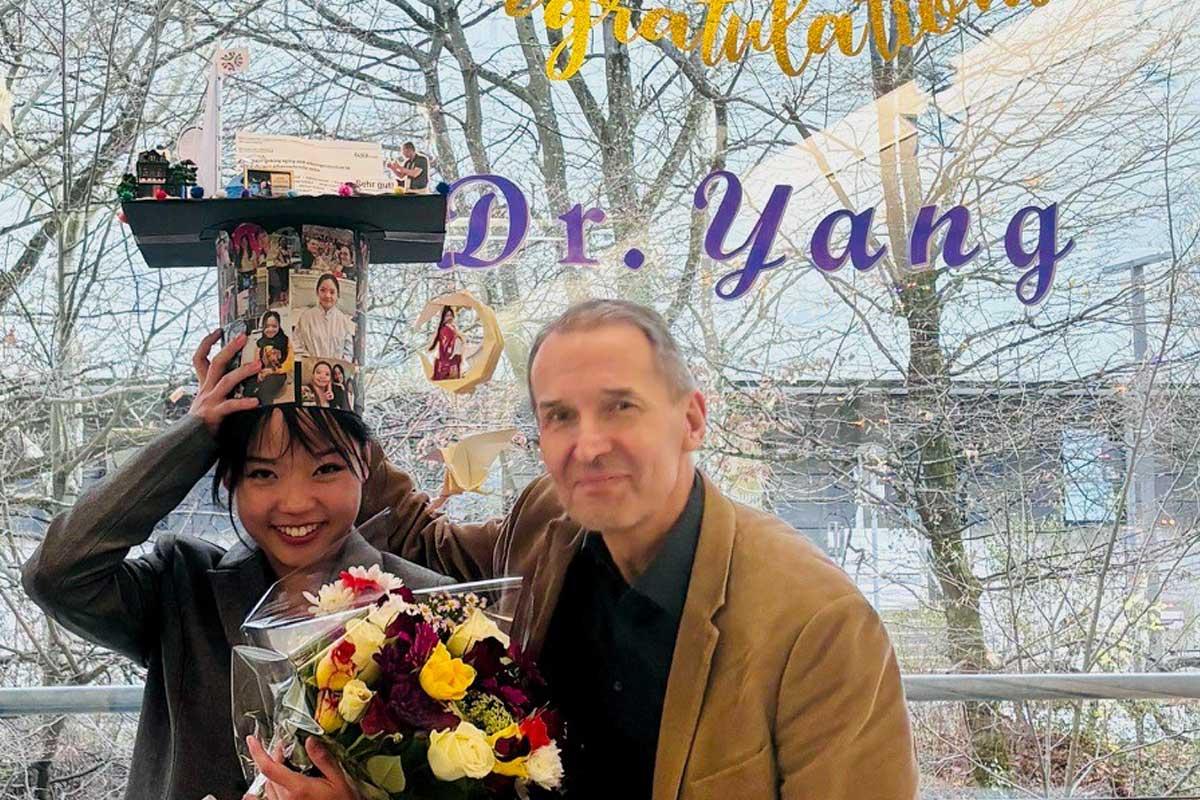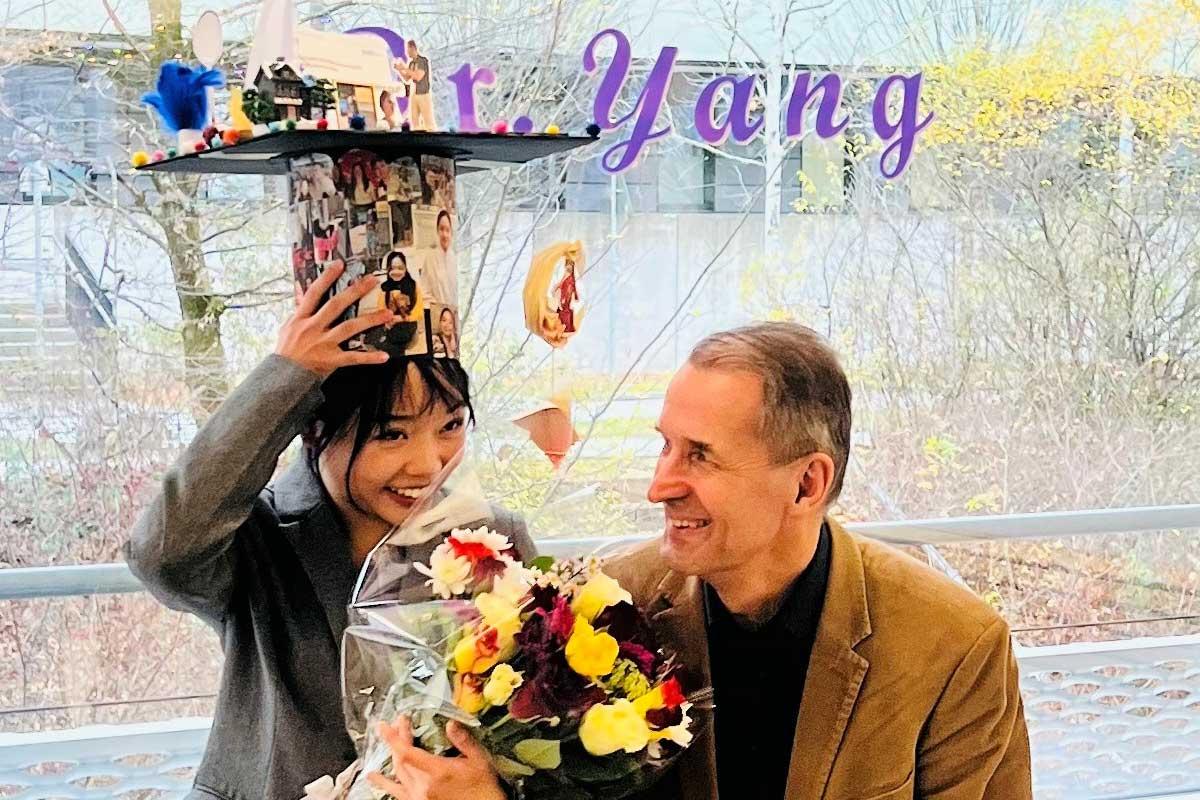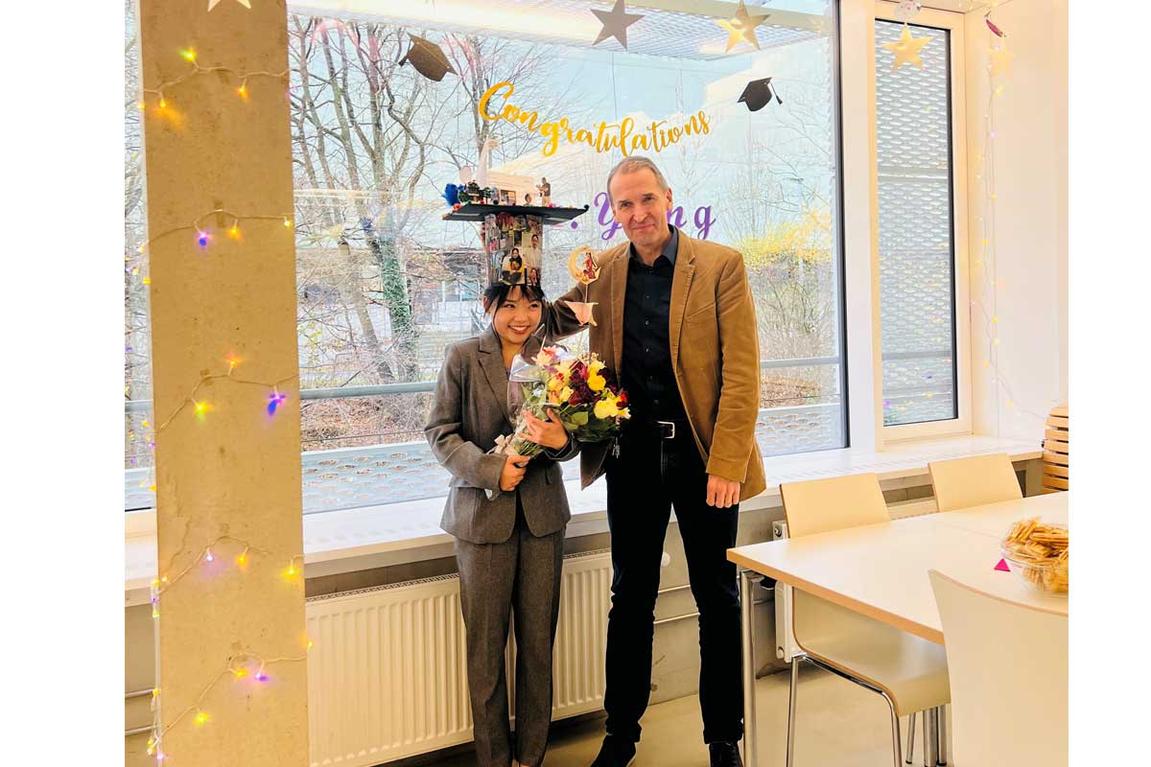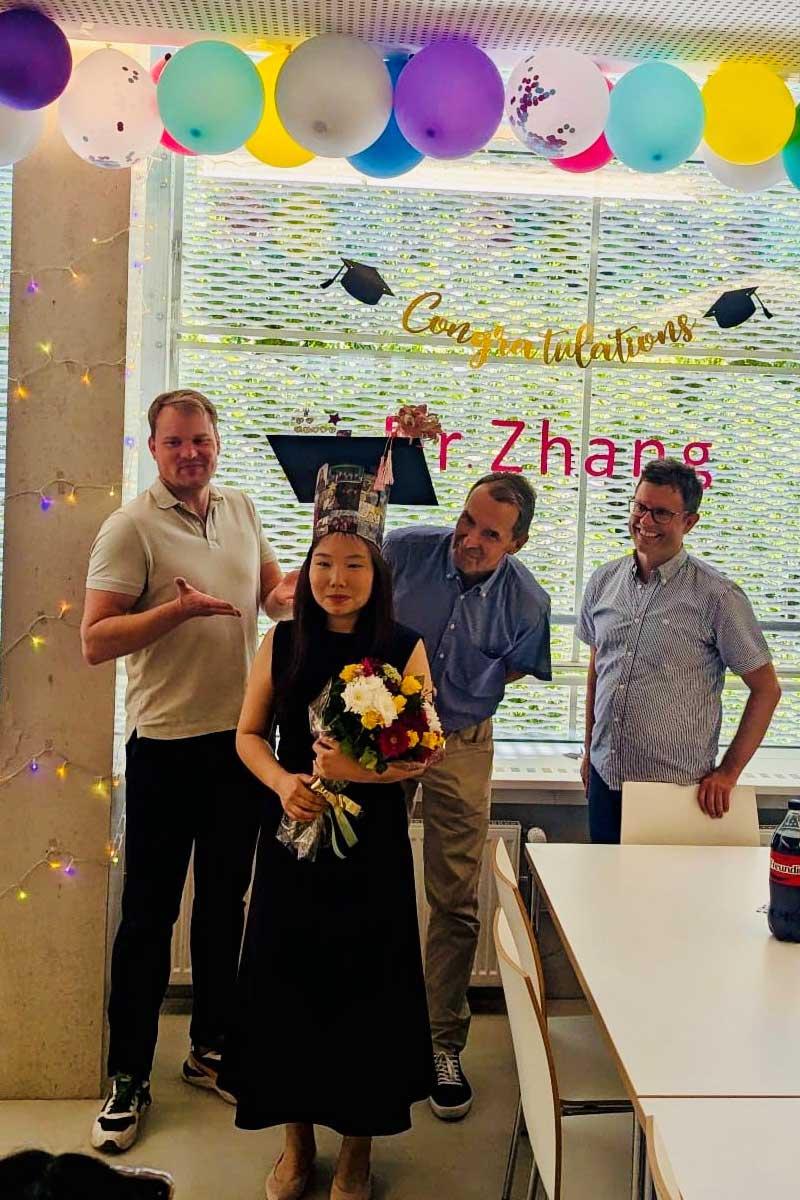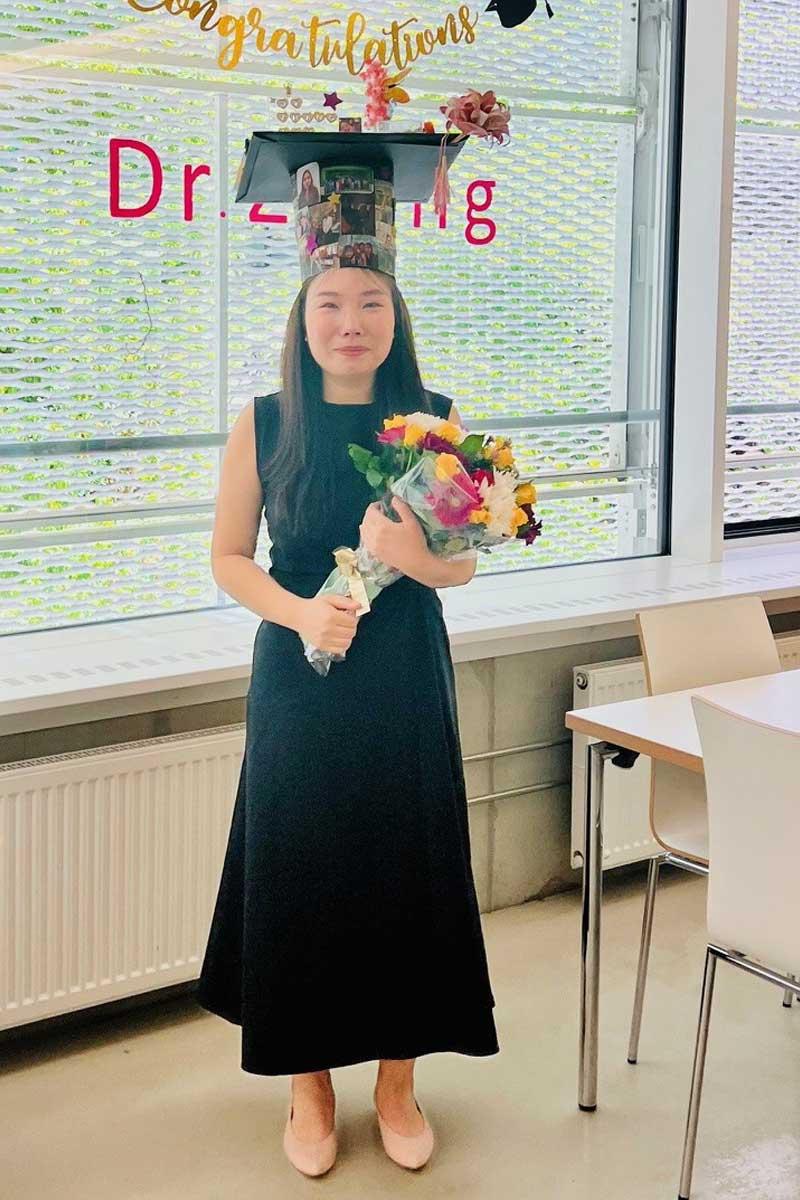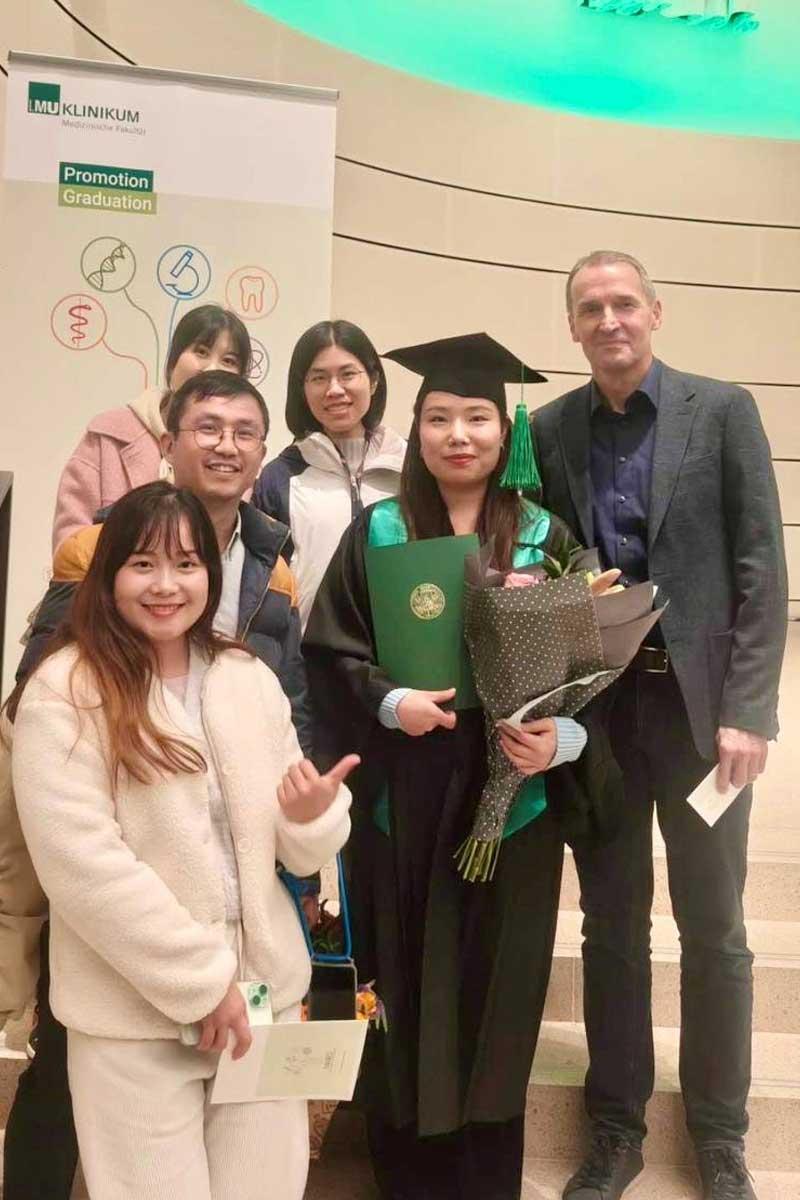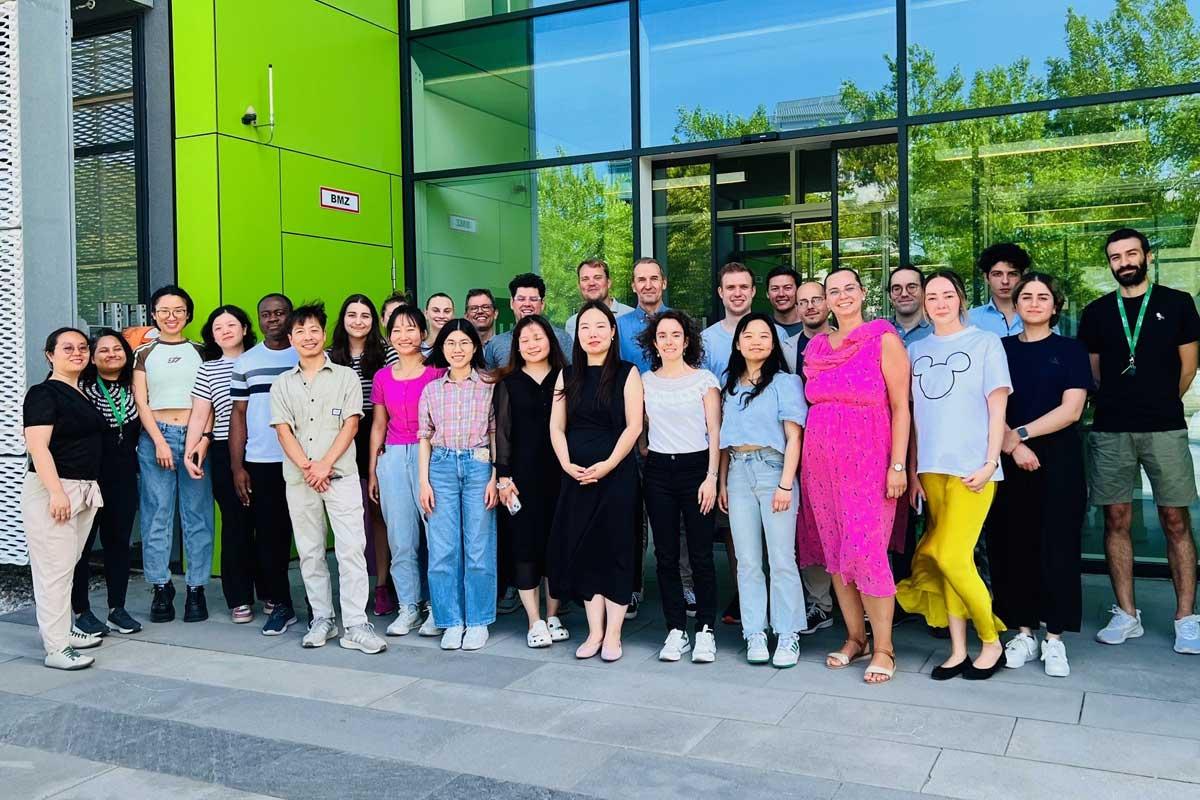We are interested in the molecular and cellular mechanisms of cardiovascular disease and inflammation. A focus is on the role of atypical chemokines, inflammatory signaling pathways, and leukocyte recruitment processes in atherosclerosis, a chronic inflammatory condition of arterial vessels and the main underlying condition of ischemic stroke. We study these mechanisms from basic vascular biology to clinical translation.
We have discovered the cytokine MIF in inflammatory and vascular disease and have characterized it as a protagonistic member of the class of ‘atypical chemokines’. Relying on biochemical and vascular biology methodologies in combination with transgenic mouse models and clinical approaches, we broadly study the MIF protein family (i.e. MIF, MIF-2/D-DT, CXCR2, CXCR4, CXCR7, CD74, sCD74) and related classical chemokines in atherosclerosis, ischemic stroke, and myocardial infarction. This involves deciphering the receptor complexes and pathways driving atherogenic recruitment of leukocyte sub-populations, but we also focus on site- and disease-specific oxidized iso-forms as encountered under ischemic/oxidative stress as well as on chemokine-like alarmins such as HMGB1.
Another focus is on atheroprotective signaling pathways maintained by the COP9 signalosome (CSN) in atherogenic endothelium. The CSN is a multi-functional protein complex that regulates SCF cullin-RING E3-ligase (CRL) NEDDylation status, controlling ubiquitin/26S-proteasome-mediated degradation of cell-regulatory proteins. Based on our discovery of a link between CSN5/JAB1 and inflammation, we currently study atheroprotective effects of CSN5 via NFκB signaling.
We are also interested in cardioprotective mechanisms of some of these mediators and how they compare with corresponding effects in ischemic stroke and cerebral-/(micro)vascular pathogenesis but also other inflammatory diseases. Lastly, capitalizing on various collaborations, we increasingly pursue links between inflammation and neurodegeneration, i.e. inflammasome and amyloid/chaperone-type mechanisms.

2025
2024
2023
2022
2021
2020
2019
2018
2017
2016
2015
2014
2013
* co-first, co-corresponding or corresponding
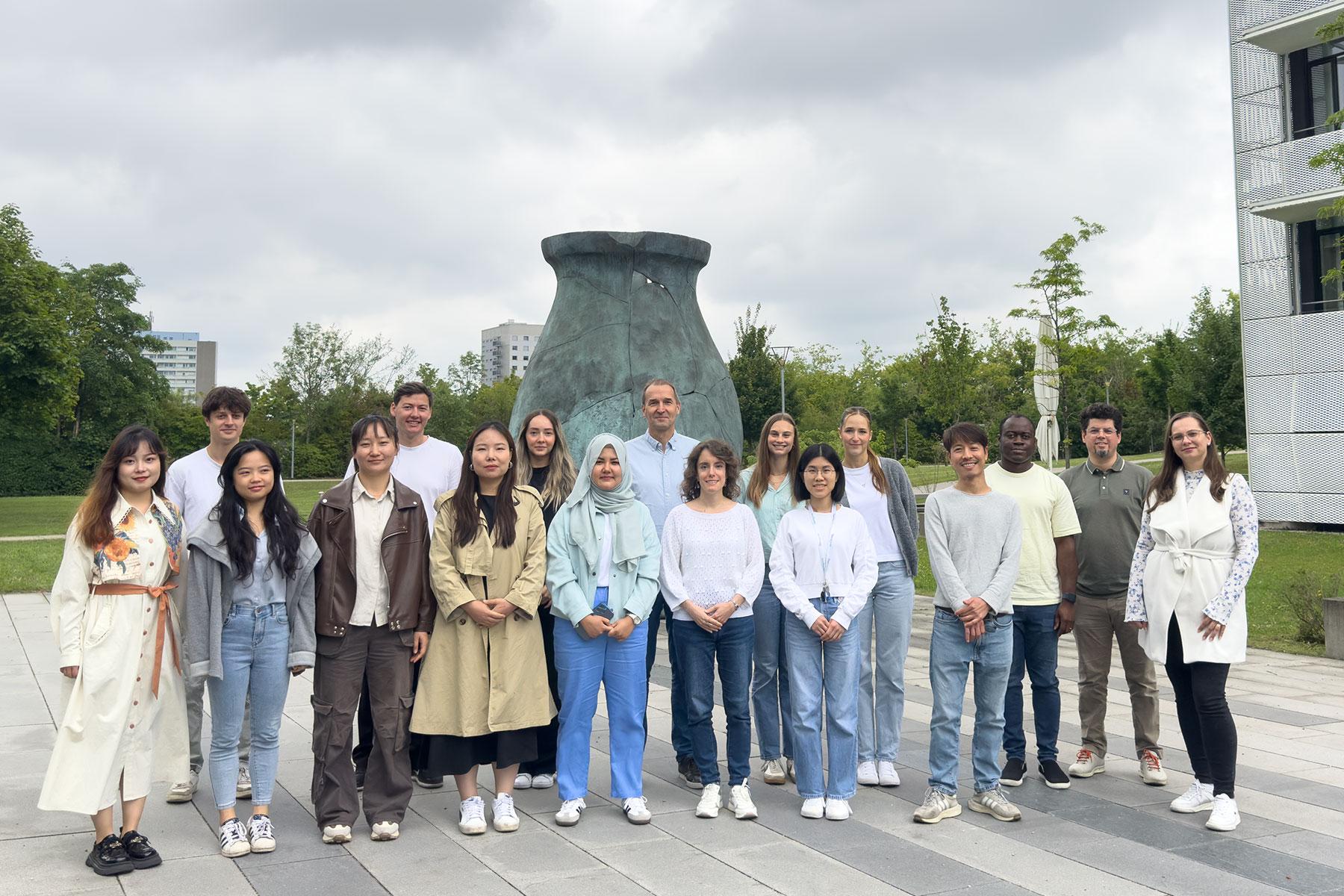

Prof. Dr. Jürgen Bernhagen, Principal Investigator
Read more about the PI on the next tab.

Sabrina Lukanovic, LL.M, Team Assistant
After finishing my Bachelor studies in law, I was awarded a scholarship for Master studies in International Business Law at the Central European University (Hungary). Currently, I am the team assistant to Prof. Bernhagen, Prof. Wahl and Dr. Georgakis. When I am out of the office, I love to spend time with my daughter and son.

Dr. Omar El Bounkari, Senior staff scientist & Technical laboratory head
Following my Biochemistry studies at the University of Hannover, I pursued my PhD degree at the Institute of Biochemistry at the Medical School of Hannover (MHH) under the supervision of Prof. Tamura-Niemann focusing on the interplay between tyrosine kinase signaling and the mRNA export machinery (THO complex). After a brief postdoc fellowship in the same group, I joined the lab of Prof. Bernhagen at RWTH Aachen University in 2010 first as a post-doc and then junior group leader, focusing on the characterization of heteromeric cytokine¬/chemokine receptor complexes MIF proteins, and their function in immune and inflammatory diseases. I followed the lab when it moved to LMU Munich in the end of 2015, where I am now a senior staff scientist, junior group, leader, and technical laboratory head. My research aims at decrypting the role of the MIF protein family and their receptors in immune cells, in particular B lymphocytes, and the related mechanisms that drive inflammatory processes in cardiovascular or autoimmune disease. In my leisure time, I like horse riding and hiking.

Dr. med. Adrian Hoffmann, clinician scientist
I am a Clinician Scientist, working in the Department of Anesthesiology (LMU University Hospital) and doing research with a focus on the diverse effects of alarmins during sterile inflammation. I studied Medicine in Frankfurt and enjoy hiking, running and after-work-Isar-swimming.

Thierry Calandra, Professor of Medicine at the University of Lausanne, Switzerland
is a Fellow at the LMU Center for Advanced Studies (CAS) and a Visiting Guest Professor at the BernhagenLab from 1/2023 and 12/2025. Prof. Calandra is a renowned infectious disease expert and one of the pioneers of MIF and inflammatory cytokine research. As part of his LMU-CAS fellow/Visiting Professor appointment at the ISD, he pursues an immunology research line with a focus on dendritic cells, CD44, and MIF.

Simona Gerra, M.Sc., Lab manager
I am originally from Italy, where I finished my Master’s studies in Biology at the University of Milano Bicocca. Working as Environmental Educator and Hiking Guide, I had the opportunity to share the basic ecological principles and evolutionary forces that affect wildlife and their associated habitats. I developed activities about topics such as forest, stream ecology and wildlife science. In August 2018, I joined the Bernhagen research group as Laboratory Technical Assistant. I perform bacterial culturing, protein purification, cell culture and immunoassays, as well as maintaining the lab supplies and equipment. In my spare time, I enjoy hiking and reading books.

Maida Avdic, B.Sc., Technical assistant
I am originally from Bosnia and Herzegovina, where I received my Bachelor degree in Genetics and Bioengineering. In October 2021, I moved to Munich and joined the Bernhagen team as Technical Assistant. The position was very appealing to me because of my interest in biochemistry, vascular biology, and the mechanisms of cardiovascular diseases. I am excited to be in a top-class research institute where I can get trained in various technologies and methods. I am looking forward to share my gained knowledge with some other young scientists in the future. In my spare time, I like to spend time with my nieces and go for walks.

Roya Batool, M.Sc.,Technical Assistant at Bernhagen Lab and SyNergy Transcriptome Hub
I am originally from Pakistan and completed my Bachelor in Biosciences there. Pursuing further studies, I gained admission to the Master’s program at Rhine-Waal University of Applied Sciences in Germany. There, I worked as a student research assistant and tutor in biochemistry and biotechnology for two years. While I enjoyed preparing bachelor’s students for molecular biology lab practices, I discovered a stronger interest in molecular biomedicine research. I joined the CURE-3D Lab at University Hospital Düsseldorf, where I completed an internship and Master thesis in area of cardiovascular diseases. In 2024, I joined research groups of Professor Bernhagen and Dr. Georgakis as a technical assistant. I am excited about gaining knowledge in modern technologies and applying my experiences for a meaningful cause. In my leisure time, I enjoy experimenting with recipes, writing blogs and reading books.

Bishan Yang, PhD student
Originally from China, I obtained my Master degree from South China University of Technology in physiology. I finished my Master thesis on the topic of cell recruitment mechanisms at the Institute of Biomechanics, and I decided to do further studies related to inflammation. In 2019, I was accepted as a PhD student in the Bernhagen lab funded by an LMU/CSC scholarship for 4 years. Now I study for my PhD thesis in which I explore the relationship between MIF proteins and B lymphocytes in atherosclerosis. In my spare time, I love playing card games with my friends as well as playing badminton.

Lin Zhang, MD, PhD student
Originally from China, I studied Clinical Medicine at Zhengzhou University, where I got my medical Master’s degree. In the fall of 2019, I joined the Bernhagen lab to work on my PhD thesis. My research focuses on the role of MIF family proteins in the resolution of inflammatory processes, e.g. in Acute Respiratory Distress Syndrome, a project performed under the supervision of Dr. med. Adrian Hoffmann and in collaboration with the Department of Anesthesiology at LMU University Hospital. In my spare time, I enjoy hiking, traveling, and spending time with friends.

Simon Ebert, PhD student
I am originally from Augsburg, a lovely city near Munich. I first did an apprenticeship as a chemical laboratory assistant at ratiopharm Ulm. Following I obtained my B.Sc. in Chemistry and Biochemistry at LMU Munich, where I was furthermore admitted to the Deutschlandstipendium. Because of my interest in cardiovascular disease and inflammation, I performed my Master's Thesis in the Bernhagen Lab from April-September 2022 on a novel CD74 ligand and have started my PhD thesis on the role of chemokine receptor mimics and their utility in cardiovascular diseases in the end of 2022. During my spare time, I like to play ice hockey, go backcountry snowboarding, and cycling.

Michael Kobina Otabil, PhD student
Originally from Ghana, where I obtained a Bachelor in Biochemistry and Master in Pharmacology. I relocated to Munich, and enrolled in another master in Biochemistry studies at LMU, primarily to upgrade my research knowledge and skills in inflammation, ligand – receptor crosstalk and drug studies. I joined the Bernhagen research group for a practical course and master thesis. I am interested in studying the effect of MIF, an atypical chemokine and finding ways to modulate its receptor interactions helps to understand it chemotactic activity implicated in atherosclerosis and other inflammatory diseases, and also, how it signals through its receptor interaction.

Yue Yuan, PhD student
I am a PhD student originally from China. I obtained my Master degree from Peking Union Medical College (Tsinghua University) and obtained a LMU-CSC scholarship for 4 years. I started working as a PhD student in the Bernhagen lab in Sept 2022. My research focuses on the role of the COP9 signalosome complex in atherosclerosis. To further my PhD training, I recently joined the graduate school of CRC1123 “Atherosclerosis”, IRTG1123. It is a great pleasure to study here in a lab full of joy and excellence.

Zhishen Zhang, MD, PhD student
Originally from China, where I obtained my Bachelor and Master in Medicine and Anesthesiology. The pandemic of COVID-19 gave me a chance to stop and think. Over years of working in the hospital as an anesthesiologist, I can still feel the adrenalin when I am handling challenging clinical cases with the evidence from research. Therefore, I decided to advance my research trajectory. In early 2024, I joined Prof. Bernhagen laboratory as a Ph.D. student. My Ph.D. thesis focuses on chemokine-targeting CXCR4 mimics in acute and chronic lung inflammation, a long-standing interdisciplinary project performed under the supervision of Dr. Adrian Hoffmann and in collaboration with the Department of Anesthesiology at LMU University Hospital. I enjoy hiking, cooking, staying with pets, and grabing kaffee and tea with friends in my spare time.

Yufei He, MD, PhD student
Originally from China, I completed my Master's degree in Plastic Surgery at Southern Medical University. I was awarded the Oversea Study Program of Guangzhou Elite Project, and in July 2024, I joined the Bernhagen lab to work on my research, focusing on the mechanisms of MIF-2 and interacting chemokines in inflammation, particularly in adipose tissue, wound healing, and atherosclerotic cardiovascular disease. This area of research is highly relevant to the field of plastic surgery and has greatly sparked my interest. I am conducting this work under the supervision of Dr. med. Adrian Hoffmann and in collaboration with the Department of Anesthesiology at LMU University Hospital and the Department of Plastic Surgery and Hand Surgery at University Hospital Zurich. In my spare time, I enjoy hiking, singing, and trying delicious food.

Simon Bittger, cand. med., MD doctoral student
I am a medical student at LMU Munich. Through my studies and a part-time job as student assistant at vascular surgery, my interest in molecular and cellular mechanisms of cardiovascular disease and inflammation was awakened and I joined the Bernhagen laboratory in April 2024. Based on preliminary work, I am investigating new MIF proteins and their role in atherosclerotic plaque formation. In my spare time, I like to spend time outdoors, doing sports and playing the piano.

Willy Hay, cand. med., MD doctoral student
I’m a medical student at LMU Munich, originally from Malaysia, who joined the Bernhagen Lab in June 2024 to pursue my MD thesis. My project is a primarily computational investigation of chemokine signatures across infectious ARDS etiologies and cardiovascular conditions: an integrative single-cell RNA-sequencing analysis of human PBMCs aimed at uncovering how distinct pathogens shape chemokine landscapes. Outside the lab, I love to travel and unwind on the badminton court.

Lisa Kollmann, cand. med., MD doctoral student
I am a medical student at the TU Munich and I joined the Bernhagen Lab in October 2024 for my MD thesis. During my time here, I will investigate the interactions between the atypical chemokine MIF and the CXCR3 ligands in the context of atherosclerosis, a project under the supervision of Dr. med. Adrian Hoffmann and in collaboration with the Department of Anesthesiology at LMU University Hospital.

Lea Klose, cand. med., MD doctoral student
I am a medical student at the LMU Munich and joined the Bernhagen Lab in March 2025. My interest in Cardiology and Neurology motivated me to study atherosclerosis more closely. During my time here, I will be working on a project studying the atheroprotective mechanisms of the COP9 signalosome, specifically focusing on the CSN5 subunit and its influence on the balance of the expression between pro- and anti-inflammatory genes and proteins. When I am not in the Lab I enjoy spending time outdoors, doing sports as well as cooking and baking.
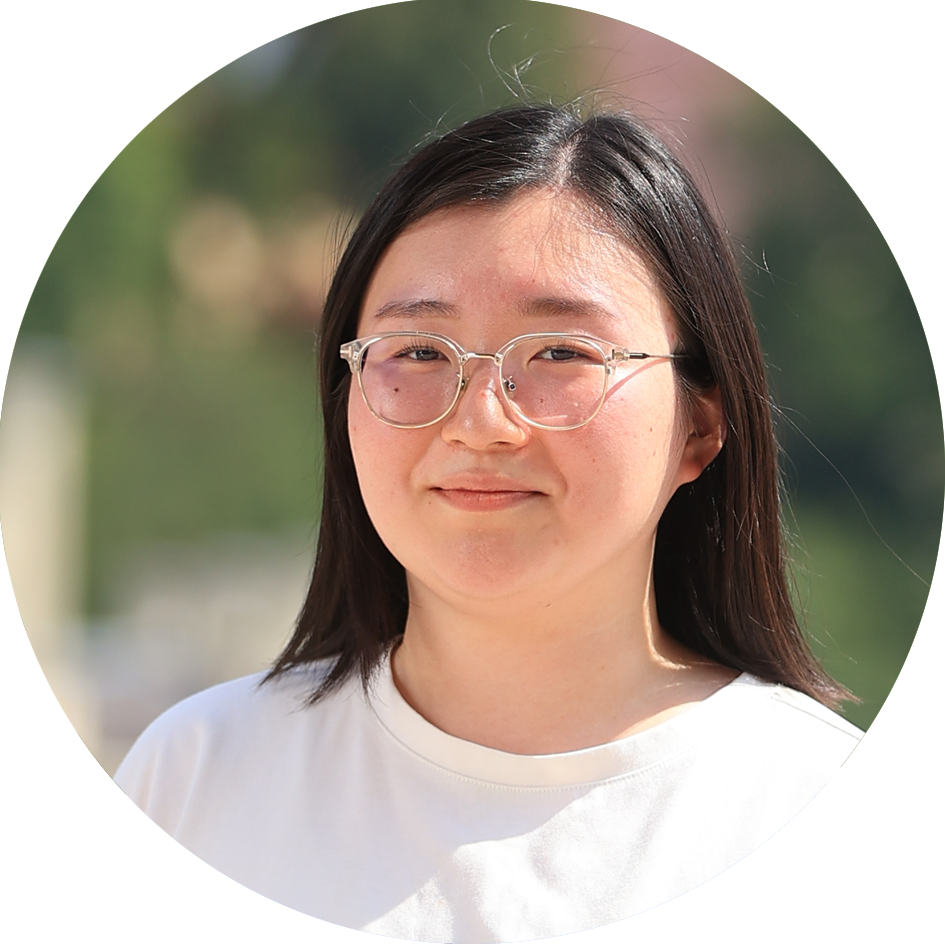
Immanuel Oh, cand. med., MD doctoral student
I am originally from South Korea but grew up in Bulgaria. I am a medical student at LMU and have the privilege of working on my MD thesis at the Bernhagen Lab. In this research project, I aim to validate the efficacy of a chemokine/chemokine receptor-specific peptide inhibitor in functional leukocyte activity assays and in vitro models relevant in acute inflammation to study the underlying molecular mechanisms. To this end, I will analyze lung tissue samples from LPS-induced lung injury models to assess epithelial and endothelial barrier integrity. Outside of the lab, I enjoy cooking, spending time with friends, and singing karaoke.
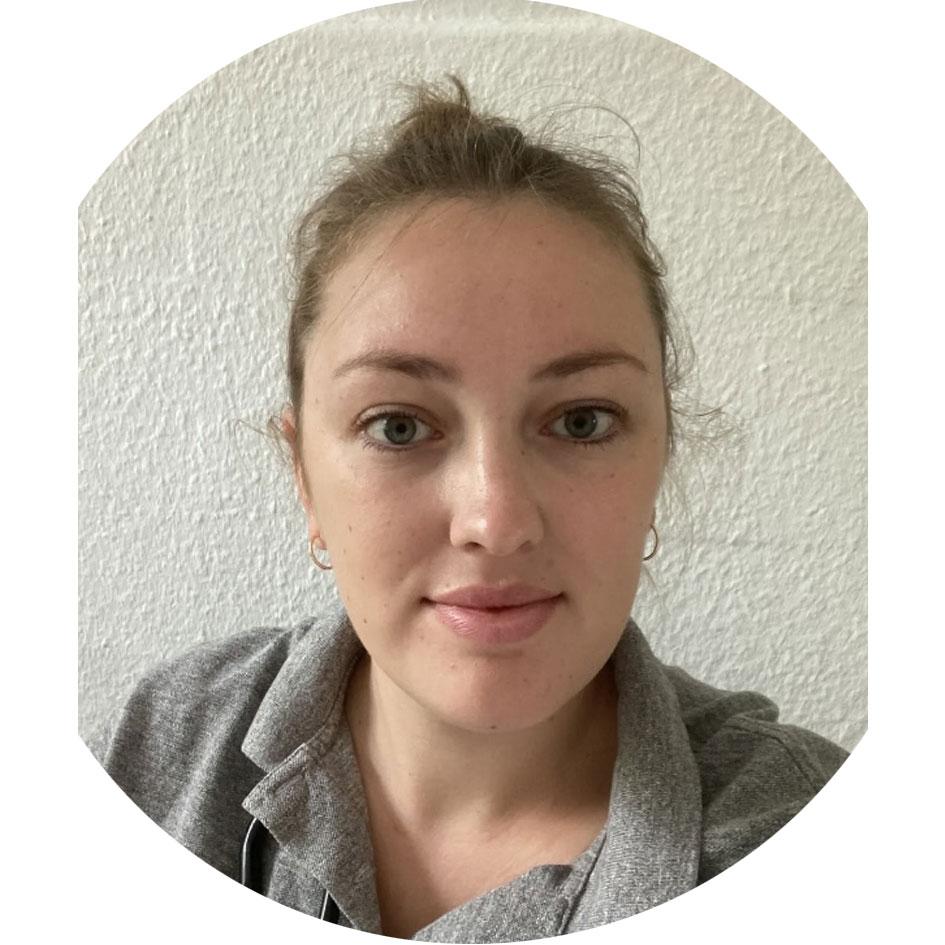
Leandra Scheutz, cand. med., MD doctoral student
I am a medical student at Ludwig Maximilian University of Munich. Driven by my strong interest in immunological processes at both the molecular and clinical level, I joined the Bernhagen Lab in August 2025 to perform my MD thesis. Building on existing research on proteins of the MIF family, my goal is to gain new insights into their function, particularly in connection with inflammatory and immune-mediated processes and a focus on a novel family member.

Whitney Hay, cand. med., MD doctoral student
I am a medical student at LMU Munich and joined the Bernhagen Lab in August 2025 to pursue my MD thesis. My project focuses on investigating inflammatory signaling networks in intracranial atherosclerosis using single-cell and spatial transcriptomics, with the aim of deepening our understanding of neurovascular inflammation and exploring potential therapeutic targets. Outside the lab, I enjoy exploring diverse cuisines and experimenting with new recipes in the kitchen.
(lab time concluded:)
Lea Piel, cand. med., MD doctoral student
Andi Abdyli, cand. med., MD doctoral student
Noor Ismail, cand. med., MD doctoral student
Genta Bushati, cand. med., MD doctoral student
Carl-Christian Schäfer, cand. med., MD doctoral student
Elena Siminkovitch, cand. med., MD doctoral student
Dario Ponto, cand. med., MD doctoral student
Eva Preuner, cand. med., MD doctoral student
Mathias Holzner, cand. med., MD doctoral student
Leon Zwißler, cand. med., MD doctoral student
Alumni
selection
Tanja Karolewski, B.Sc., Master Student, Aalen University, Bernhagen Lab 2024 - 2025
Naomi Maureen Krammer, M.Sc., Blue Ribbon Partners, Bernhagen Lab 2023 – 2025
Emma Paya Capilla, Bachelor Student, LMU University, Bernhagen Lab 2024 - 2025
Dr. rer. nat. Markus Brandhofer, Bernhagen Lab 2013 - 2024
Iris Woltering, Assistenzärztin, LMU Klinikum (Anästhesiologie), Bernhagen Lab 2020 – 2023
Kobra Moradzadeh Gavbazeh, University Prague, Bernhagen Lab 2021 – 2023
Philipp Leopoldseder, PhD student BMC, Labor Prof. Wahl-Schott, Bernhagen Lab 2023 - 2024
Dr. Ying Gao, MD, Junior Resident, Shanghai Ninth People’s Hospital, Shanghai Jiao Tong University, Bernhagen Lab 2018-2024
Marina Delgado, Master Student, Autonomous University of Barcelona, Bernhagen Lab 2024
Alba Rubies Rovira, Bachelor’s Student, University of Vic - Central University of Catalonia, Bernhagen Lab 2024
Dr. Lukas Daniel Spiller, Global Clinical Development & Operations, Boehringer Ingelheim Pharma GmbH & Co. KG, Bernhagen Lab 2020-2023
Dr. med. Sabrina Reichl, Assistenzärztin, Universitätsspital Zürich (Klinik für Radio-Onkologie), Bernhagen Lab 2017-2022
Matthias Kaiser, Master Student, Universität Kopenhagen (Biotech Research & Innovation Centre in Kopenhagen), Bernhagen Lab 2021-2022
Yuan Tian, PhD, Postdoctoral investigator,Bernhagen Lab 2017-2023
Barbara Hönig, Team-Assistant, Institute for Stroke and Dementia Research (ISD, AG Dichgans, AG Jäkl and AG Tied), LMU Munich, Bernhagen Lab 2022-2023
Sara Mardazad, Bernhagen Lab 2022
Jelena Milic, PhD, Laboratory Manager MAxL, Bavarian Biotech Cluster BioM , Bernhagen Lab 2016-2022
Chunfang Zan, MD, PhD, Collaborative Innovation Center for Molecular Imaging of Precision Medicine, First Hospital of Shanxi Medical University, Taiyuan, China
Elina Bugar, MSc, Bernhagen Lab 2022
Ruben Ellesworth Galindo, Bernhagen Lab 2021
Dr. Christine Krammer, Scientist / QC Manager, Eurofins Biopharma Product Testing Munich GmbH, Bernhagen Lab 2016 - 2021
Priscila Bourilhon, R&D Project Leader, Alytix, Santa Fe, Argentina, Bernhagen Lab 2016 - 2021
Dr. med. Wang Sijia, MD, Resident in Neurology at Shenzhen People's Hospital, China, Bernhagen Lab (2017-2021)
Dr. med. Jonas Wagner, Junior Attending Physician and Clinician Scientist, University Medical Center Hamburg- Eppendorf (UKE), Bernhagen Lab 2015-2020
Dr. Lisa Schindler, Postdoc, Department of Biochemistry and Molecular Cell Biology (IBMZ), University Medical Center Hamburg- Eppendorf (UKE), Bernhagen Lab 2013-2020 (Aachen and Munich)
Dr. Dzmitry Sinitski, Scientist, Institute of Microbiology and Laboratory Medicine/WHO – Supranational Reference Laboratory of Tuberculosis, Bernhagen Lab 2016-2020
Dr. med. Valerie Exler, Junior Attending Physician, Chirurgie Spital Thun, Schweiz, Bernhagen Lab 2014-2018
Prof. Dr. Christian Stoppe, FAHA, Department of Anesthesiology, Intensive Care Medicine and Pain Therapy, University Hospital Würzburg, German, Bernhagen Lab 2010-2014
Dr. Corinna Schmitz, Postdoc, Institute for Molecular Cardiovascular Research (IMCAR), RWTH Aachen University
Bernhagen Lab 2012-2017
Dr. Christoph Emontzpohl, Postdoc, The University of Texas Health Science Center at Houston, McGovern Medical School, Bernhagen Lab2013-2018 (partial, shared with StoppeLab)
Dr. Josefine Soppert, Postdoc, Institute for Molecular Cardiovascular Research (IMCAR), RWTH Aachen University
Bernhagen Lab 2013-2018 (partial, shared with StoppeLab)
Dr. med. Luisa Averdunk, Junior Attending Physician, Institute for Genetics, Düsseldorf University, Bernhagen Lab 2013-2018 (partial, shared with StoppeLab)
Michael Lacy, Assistant Professor, Virginia Commonwealth University, Richmond, Virginia, United States, Bernhagen Lab2015-2017
Dr. med. Wibke Schulte, Junior Attending Physician, Charite Hospital, Berlin, Bernhagen Lab 2010-2016 (partial)
Dr. Pathricia Tilstam, Postdoc, Yale University, Bernhagen Lab 2010-2014 (partial, shared with NoelsLab)
Dr. Sandra Jumpertz, Postdoc, Department of Visceral Surgery, RWTH Aachen University, Bernhagen Lab 2011-2015
Dr. Thomas Hennes, Clinical Data Coordinator, CROMSOURCE, Bernhagen Lab 2011-2015
Prof. Dr. med. Bong-Sung Kim, Senior Attending Physician, UniversitätsSpital Zürich, Bernhagen Lab 2009-2014 (partial)
Dr. Christina Klasen, Sales Manager Life Science EMEA, SYSMEX Deutschland GmbH, Bernhagen Lab 2010-2014
Dr. Setareh Alampour-Rajabi, Postdoc, Institute for Molecular Cardiovascular Research (IMCAR), RWTH Aachen University, Bernhagen Lab 2010-2015
Dr. Yaw Asare, Postdoc, Institute for Stroke and Dementia Research (ISD, DichgansLab), LMU Munich, Bernhagen Lab 2010-2014
Marlies Tursch, vet. Med., Helmholtz München, Bernhagen Lab 2016-2021
Dr. med. Hongqi Lue, Senior Scientist, RWTH Aachen University, Bernhagen Lab 2000-2015
Priv.-Doz. Dr. med. Gerrit Grieb, Director, Clinic for Plastic and Hand Surgery, Havelhöhe Hospital Berlin, Bernhagen Lab2007-2013 (partial)
Dr. Daniel Heinrichs, Projektträger Jülich (PTJ), BMBF, Consulting Molecular Life Sciences
Bernhagen Lab2009-2015 (associated 2016-2020)

Jürgen was appointed Professor and Chair of Vascular Biology at LMU and Principal Investigator at ISD in 2015. Grown up east of Cologne, Germany, he is a biochemist and immunologist by training, who obtained his Diploma (Master) degree and PhD from the University of Tübingen, Germany, and the Picower Institute for Medical Research, Manhasset, NY, USA.
He previously held positions in basic and applied biomedical research as a Postdoc and Senior Scientist at the Picower Institute for Medical Research, where he worked with Professors Richard Bucala and Anthony Cerami, and as a Group Leader and Department Head at the University of Stuttgart and the Fraunhofer Institute in Stuttgart. Before moving to Munich, he was a Professor of Biochemistry at RWTH Aachen University, where he headed the Institute of Biochemistry and Molecular Cell Biology.
His research centers around the molecular and cellular mechanisms driving inflammation and cardiovascular disease with a focus on cytokines, chemokines, their receptors, and cellular signaling platforms. He (re)-discovered MIF proteins, showing that they are central players in inflammatory pathologies, and identified the MIF/chemokine receptor axis as a driving force of atherosclerotic disease. The larger MIF family of proteins and their receptors as well as the COP9 signalosome continue to be a major focus in the lab due to their unique molecular properties and key position in cell physiology and disease processes including atherosclerosis and ischemic stroke.
Jürgen published >235 papers in this area, and his work has been cited >17000 times and is flanked by numerous patents. The research has been funded by the Deutsche Forschungsgemeinschaft (DFG), several Foundations, the SyNergy Excellence Cluster, the BMBF and Fraunhofer, the m4 Award, the Munich Heart Alliance, and industry.
Personal Data
Jürgen Bernhagen, PhD
Professor, Ludwig-Maximilians-University (LMU), Munich
Chair of Vascular Biology, Institute for Stroke and Dementia Research
Principal Investigator, Institute for Stroke and Dementia Research
Scientific vita
2015 – Chair of Vascular Biology (W3), Institute for Stroke and Dementia Research (ISD), Klinikum der Universität München, Ludwig-Maximilians-University (LMU), Munich, Germany
2015 – Professor of Vascular Biology, Ludwig-Maximilians-University (LMU), Munich, Germany
2010 – 2015 Director (W3) of the Institute of Biochemistry and Molecular Cell Biology, RWTH Aachen University, Aachen, Germany
2009 – 2015 Chair of Biochemistry and Molecular Cell Biology, RWTH Aachen University, Aachen, Germany
2002 – 2009 Professor of Biochemistry (C3), Head of Division of Biochemistry and Molecular Cell Biology, Institute of Biochemistry and Molecular Biology, RWTH Aachen University, Aachen, Germany
2000 – 2005 Head of Department of Molecular Biotechnology at the Fraunhofer Institute of Interfacial Engineering and Biotechnology, Stuttgart (part time appointment), Stuttgart, Germany
2000 – 2001 Assistant Professor and Head of Laboratory of Biochemistry, IGVT, University of Stuttgart, Germany
2000 Habilitation in Biochemistry, University of Tübingen, Tübingen, Germany
1995 – 1999 Senior scientist/group leader, Laboratory of Biochemistry, IGVT, University of Stuttgart, Germany
1994 – 1995 Postdoctoral Investigator and Senior Scientist at the Picower Institute for Medical Research, Manhasset, NY, USA, with A. Cerami & R. Bucala
1992 – 1994 PhD thesis in Biochemistry (Dr. rer. nat.), Picower Institute for Medical Research, Manhasset, NY, USA, and Biochemical Institute of the University of Tübingen, Germany
1988 – 1989 Visiting Research Fellow in molecular arthritis research Queen Mary & Westfield College, University of London, England
1985 – 1991 Study of Biochemistry (Diplom/Master), University of Tübingen, Germany
Coordinating Functions, Editorial Roles, Honors, and Awards
2022 – 2026 Member and Vice-Spokesperson SFB1123 „Novel Targets in Atherosclerosis
2021 – () BioM m4 Award
2021 – () Associate Editor: The FASEB Journal
2021 – () Organizer Virtual MIF Lecture series
2017 – 2020 Member SFB-TRR57 “Organ Fibrosis”
2019 – () Editorial Board: Atherosclerosis; Scientific Reports; Associate Editor: The Quarterly Journal of Medicine (Oxford University Press); Conditioning Medicine
2015 – () Member Munich Cluster of Systems Neurology (SyNergy)
2015 – () Member, Munich Heart Alliance (MHA) within German Center for Cardiovascular Research (DZHK)
2014 – 2022 Member SFB1123 „Novel Targets in Atherosclerosis“
2014 – 2015 Vice-Spokesman, IZKF Aachen, Cardiovascular Cluster
2014 – () Editorial board Frontiers in Cardiovascular Medicine, Guest editor Frontiers in Immunology (2014-2016)
2013 – () Permanent Member of the Referee Panel of the Studienstiftung des Deutschen Volkes for PhD fellowships
2010 – 2014 Spokesman of the International DFG Graduate School GRK1508/EuCAR “Arterial Remodeling”
2009 W3 Professorship offers for Chairs in Biochemistry at Ruhr-University, Bochum and Heinrich-Heine-University Düsseldorf (declined)
2009 – 2016 Member SFB-TRR57 “Organ Fibrosis”
2009 – 2015 IZKF Aachen, Vice-Spokesman Cardiovascular Cluster (2014-2015), Member of Executive Board (2009-2015)
2008 Paul-Martini-Award for Clinical Pharmacology and Achievements in Drug Discovery
2007 – () Founding Member and Member of Board, International MIF Consortium
2007 – 2014 Deputy Spokesman of the DFG Collaborative Research Center FOR809
2007 Member Fellowship Selection Board (‘Hochschulauswahl’) of the German National Academic Foundation (‘Studienstiftung des Deutschen Volkes’)
2004 – 2005 Guest Editor, Antioxid. Redox Signal
2002 – 2011 Member SFB 542 „Molecular Mechanisms of Inflammation“
2000 – 2005 Member of the Institutional Steering Committee of the Fraunhofer Institute IGB
1994 Fellowship (“Promotionsstipendium“) Award of the Studienstiftung des Deutschen Volkes
1988 – 1991 Study Scholarship of the Friedrich-Ebert-Foundation
Fields of Interest
Cytokines, chemokines, atypical chemokines, atherosclerosis, ischemic stroke, myocardial infarction and remote ischemic preconditioning, inflammation and inflammatory diseases, receptor mechanisms, signal transduction, and the COP9 signalosome
For information on Currently Funded Projects see ISD Research Support
-
Bishan Yang obtained her PhD degree
November 2025 – Congratulations to Bishan Yang for successfully defending her PhD thesis. Bishan is originally from Foshan, China, and holds a Master degree in Physiology. She came to the BernhagenLab with a competitive LMU-CSC fellowship and worked in the BernhagenLab towards her PhD over the last 5 years. She also was a member of the prestigious IRTG1123 Graduate School Atherosclerosis at LMU Munich. Bishan completed her PhD thesis entitled “Role of MIF proteins in the late-stage of atherosclerosis”. She was an important member of the lab’s atherosclerosis research team.
Dr. Yang’s work helps to understand basic mechanisms of how aging drives the atherogenic process and how to consider such mechanisms when devising cytokine-based intervention strategies in general, and MIF family-focused approaches in particular, to treat atherosclerosis.
Congratulations – Bishan – excellent work and all the best for your future career in cardiovascular science and medicine!
Lin Zhang, MD, successfully defended their PhD thesis
June 2025 –Big congrats to Lin Zhang for successfully defending her PhD thesis. Lin is a member of the BernhagenLab, but worked across labs in collaborative projects with the Department of Anesthesiology at LMU University Hospital. Accordingly, she was co-supervised by Dr. med. Adrian Hoffmann, an anesthesiologist and clinician scientist in the BernhagenLab. Lin completed her doctoral thesis entitled “Unexpected mechanisms of the MIF/receptor network in activated T cells and neutrophils” to obtained her PhD degree. Lin’s thesis topic connected basic research work on T cells, neutrophils and the atypical chemokine MIF with inflammatory mechanisms in acute lung conditions. She also cooperated with the laboratory of Professor Aphrodite Kapurniotu at Technical University of Munich (TUM) to test peptide-based therapeutic candidate molecules in lung disease models. She was a holder of the prestigious CSC fellowship.
Dr. Zhang’s thesis work adds important contributions to the research program of the BernhagenLab and to understanding the pathogenesis of acute inflammatory conditions. She will pursue post-doctoral work in the BernhagenLab to complete her studies and prepare further publications.
Congratulations – Lin - and all the best for your future career!

An atypical chemokine that links atherosclerosis and metabolic disease
Simon Ebert Participates the Expert Panel of the Munich Single Cell & Spatial Discovery Symposium
February 2025 – Simon Ebert, a PhD student from the Bernhagen Lab at the Institute for Stroke and Dementia Research (ISD), was invited by 10x Genomics to join the Expert Panel at the Munich Single Cell & Spatial Discovery Symposium. This prestigious event brought together leading researchers and industry experts from 10x Genomics to discuss the future of single-cell and spatial genomics and its transformative impact on biomedical research.
read more …The panel discussion was moderated by Martin Seifert (Sr. Science & Technology Advisor, 10x Genomics) and featured Anne Krogsdam (Head of MultiOmics-Sequencing Core Facility, Medical University Innsbruck), Katja Steiger (Head of Comparative Experimental Pathology, Technical University of Munich), Jovica Ninkovic (Professor, LMU Munich & Director of the Research Unit, Helmholtz Zentrum München), Fabian Theis (Professor, Technical University of Munich), and Simon Ebert (PhD Student, AG Bernhagen, ISD, LMU University Hospital).
Simon contributed insights on cutting-edge single-cell and spatial transcriptomics technologies, emphasizing their role in disease research and precision medicine. The discussion highlighted breakthroughs in multiomics, computational biology, and spatial transcriptomics, offering new perspectives on how these approaches are shaping the future of biomedical research.
The symposium served as a vital platform for scientific exchange, fostering collaborations between academia and industry. We thank 10x Genomics for organizing this outstanding event and for their dedication to driving innovation in the field of genomics.
We are proud of Simon’s participation in this important discussion and look forward to the continued impact of his research on cardiovascular disease in the Bernhagen Lab!
For more information, visit 10x Genomics and check out their latest news here.
Buket Bulut & Hao Ji successfully defended their doctoral theses
June/July 2024 – Congratulations to Buket Bulut and Hao Ji for successfully defending their doctoral theses. Both Buket and Hao were members of the lab of Prof. Ozgun Gokce (ISD: 2016-2023; University of Bonn: > 4/2023, but actually worked across labs on collaborative projects of the Gokce and Bernhagen labs. Buket completed a doctoral thesis entitled “Investigating the nuclease activity of MIF and MIF-2 and their effects on DNA damage” and obtained a Dr. rer. nat. degree. Hao was a holder of a prestigious LMU-CSC fellowship between 2018 and 2022, completed his thesis entitled “Evaluating the therapeutic effects of a peptide-based inhibitor of amyloid aggregation in mouse models of Alzheimer's disease”, and earned a PhD degree.
Their thesis work added important contributions to the research programs of both the Gokce and Bernhagen labs, as well as to that of the lab of Prof. Aphrodite Kapurniotu at TUM, a collaborator on Hao’s project. Congratulations to both of you and all the best for your next career steps.

New protein/cell engineering approach enables large-scale ex vivo production of functional human phagocytes
June 2024 – The Bernhagen Lab contributed to a study led by the Division of Transfusion Medicine, Cell Therapeutics and Haemostaseology at LMU University Hospital, demonstrating that an engineered protein, as a single factor, is useful for large-scale ex vivo production of human phagocytes. These phagocytes exhibit human monocyte-like signatures (see Figure) indicating the potential of the method to produce functional immune cells for various experimental cell-based approaches.
The study just appeared in the June issue of the Proc Natl Acad Sci USA

Structures of the CC chemokine CCL11 (aka eotaxin-1) and CXCL10 (aka IP10). Structures adapted from Wikipedia.
Important pathogenic roles unraveled for chemokine pathways in cardiovascular and immune diseases
June 2024 – The Bernhagen Lab contributed to two recent chemokine studies uncovering important roles for certain CC and CXC chemokine pathways in immunologic and cardiovascular diseases, respectively. In one study, led by the Sperandio Lab at LMU, eosinophil recruitment via the CCL11/CCR3 chemokine axis was demonstrated to be regulated by the sialyltransferase ST3Gal-IV. The findings have significance for diseases such as certain allergic and immune diseases, in which unwanted eosinophil infiltration plays a role. In the second study, led by the Georgakis Lab at the ISD, proteogenomic data integration uncovered the interferon-γ-inducible chemokine CXCL10 (aka IP-10) as a downstream mediator for IL-6 signaling on atherosclerosis in three vascular compartments. The results indicate that the CXCL10 axis could be a future drug target for atheroprotection.
The work was published in the renowned journals Proc Natl Acad Sci USA and Circulation, respectively.


Sabrina Reichl successfully defends her MD thesis
December 2023 – Sabrina Reichl was a participant in the prestigious FöFoLe MD thesis program. With her thesis project The atypical chemokine MIF and B lymphocytes in atherosclerosis: emerging molecular and cellular links”, Sabrina significantly contributed to our research line on links between chemokines, aging, and atherosclerosis. Sabrina just successfully defended her MD thesis. Congratulations, Sabrina, to a very nice thesis and valuable contributions to our research. All the best for your future career track!
Influence by Imitation
November 2023 – A study led by the BernhagenLab together with collaborators from RWTH Aachen University and Yale University shows that certain plant proteins resemble human signaling proteins of the immune system and can bind to their receptors. (https://www.lmu.de/en/newsroom/news-overview/news/plant-proteins-influence-by-imitation.html). While on one hand representing basic cross-discipline research, the study may also have potential translational implications in the future, as the receptors and their human cytokine agonist have been shown to be important drivers of atherosclerotic cardiovascular diseases and inflammation. The team also involved cooperation partners from the Max-Planck-Institute for Biochemistry, the SyNergy Cluster, and the Department of Anesthesiology. The study was published in the renowned journal Science Signaling>>

Protective Role of the COP9 Signalosome in Neuroinflammation Uncovered
August 2023 – The COP9 signalosome is a multi-functional protein complex, mainly regulating ubiquitin/proteasome-mediated protein degradation processes. The COP9 and its subunit CSN5 had previously been found to have a protective activity in atherosclerosis by attenuating inflammatory macrophage and endothelial cell responses. The new paper by the BernhagenLab, spear-headed by PhD student Yuan Tian, now shows that the protective role of the COP9 extends to microglial inflammation entailing protection from neuroinflammatory responses. The study was a great collaborative effort together with the Tahirovic Lab at DZNE and the Behrends Lab at SyNergy/LMU. The work was recently published in the journal Cell Mol Life Sci (Tian Y, Milic J, Monasor LS, Chakraborty R, Wang S, Yuan Y, Asare Y, Behrends C, Tahirovic S, Bernhagen J. The COP9 signalosome reduces neuroinflammation and attenuates ischemic neuronal stress in organotypic brain slice culture model. Cell Mol Life Sci. 2023 Aug 19;80(9):262. doi: 10.1007/s00018-023-04911-8.).


Ying Gao successfully defended her doctoral thesis
Oct 2023 – Congratulations to Ying for successfully completing their doctoral thesis entitled “First and Second Generation CXCR4 Peptide Mimics to Block MIF Pathways in Atherosclerosis”, respectively. Ying was a holder of a LMU-CSC fellowship between 2018 and 2022. Her thesis work added important contributions to our CRC1123 and m4 projects. Congratulations also to your 2nd place young investigator award at the 2023 San Servolo cardiovascular research conference. All the best for your next career steps in the US and China.


LMU CAS Fellow at the ISD
April 2023 – Thierry Calandra, Professor of Medicine (University of Lausanne), a renowned infectious disease and MIF expert, was appointed 2023 Visiting Fellow at the LMU Center for Advanced Studies (CAS). During his time in Munich, he will give lectures and pursue an immunology research line with a focus on dendritic cells and MIF hosted by the BernhagenLab at the ISD.

Two-photon microscopy of platelets
New Protein Complex Epitomizes the Atypical Chemokine Interactome
October 2022 – Chemokines are important drivers of the atherosclerotic inflammatory process. They are well known to form homodimers, but have more recently also been found to hetero-dimerize (“the chemokine interactome”). Work by the BernhagenLab performed in the framework of the collaborative research cluster CRC1123 Atherosclerosis together with collaborators from the Institute of Cardiovascular Prevention (IPEK) at LMU (P. von Hundelhausen and team), the Kapurniotu Lab and Mägdefessel Lab at TUM, and cooperation partners from the University of Maastricht, the Department of Vascular Surgery at LMU, the University of Tübingen, and the University of Minnesota, now demonstrates that the atypical chemokine MIF can form a complex with the classical platelet chemokine CXCL4L1. Complex formation attenuates the pro-inflammatory and pro-thrombotic activities of MIF, suggesting that such atypical chemokine complexes can serve to fine-tune chemokine functions. Their study will help to better understand regulation networks in inflammatory and atherogenic conditions and potentially to identify new opportunities for intervention. Led by PhD student Markus Brandhofer and clinician scientist Adrian Hoffmann, the work was published in the journal Cell Mol Life Sci (Brandhofer M, Hoffmann A, Blanchet X, Siminkovitch E, Rohlfing AK, El Bounkari O, Nestele JA, Bild A, Kontos C, Hille K, Rohde V, Fröhlich A, Golemi J, Gokce O, Krammer C, Scheiermann P, Tsilimparis N, Sachs N, Kempf WE, Maegdefessel L, Otabil MK, Megens RTA, Ippel H, Koenen RR, Luo J, Engelmann B, Mayo KH, Gawaz M, Kapurniotu A, Weber C, von Hundelshausen P, Bernhagen J. Heterocomplexes between the atypical chemokine MIF and the CXC-motif chemokine CXCL4L1 regulate inflammation and thrombus formation. Cell Mol Life Sci. 2022 Sep 12;79(10):512. doi: 10.1007/s00018-022-04539-0.)


Congratulations to Jelena Milic for a successful defense of her PhD thesis and her new position at BioM
Oct 2022 – Congratulations to Jelena Milic for completing a comprehensive PhD project and for successfully defending her thesis entitled “Role of the COP9 Signalosome in Atherogenic Inflammation”. Jelena did a great job in advancing our COP9 signalosome / atherosclerosis research line and in handling a highly challenging project and numerous collaborations within the CSD and CRC1123. Thank you also for your great efforts as student spokesperson of IRTG1123 and as our lab representative on the Green Initiative of the CSD. At last, congratulations on your new job at BioM. We wish you best of success for your new position as Laboratory Manager MAxL at BioM.
Yuan Tian and Markus Brandhofer successfully defended their doctoral theses
Sept-Oct 2022 – Congratulations to Yuan Tian and Markus Brandhofer, who successfully completed their doctoral theses entitled “Modulation of neuroinflammation and stroke outcome by the COP9 signalosome” and “Interactions between MIF-family proteins and the classical chemokine ligand/receptor network”, respectively. Yuan and Markus have been instrumental members of our team for several years and have made important contributions to several of our research lines and publications. Yuan wrote a full-size PhD script (“monography”), while Markus pursued the prestigious Dr. rer. nat. thesis line and concluded with a cumulative thesis based on three first/co-first authorship publications, accompanied by several flanking co-authorships. Congratulations again to both of you on your degree! We are happy that Markus will stay with us as part of our BioM m4 team SELECKREM, while Yuan has successful acquired a position abroad and is embarking on a postdoctoral scientist track in the UK as a next step in her career. We wish both of them a great start into their new positions.
CRC1123 “Atherosclerosis” approved for another 4 years
Jun 2022 – CRC1123 “Atherosclerosis” approved for another 4 years: The Collaborative Research Center CRC1123 “Atherosclerosis - Mechanisms and Networks of Novel Therapeutic Targets” (Speaker: Christian Weber, IPEK, LMU) was awarded a third funding period from the DFG for the years 2022-2026. The cluster encompasses 16 projects, 3 central projects, and a graduate school with a total funding volume of 14.5 mio. €. The ISD scientists Yaw Asare, Jürgen Bernhagen, Martin Dichgans, and Arthur Liesz contribute to 4 projects within the center: A2 (von Hundelshausen/Bernhagen), A3 (Bernhagen/Kapurniotu), B3 (Asare, Dichgans), B11 (Liesz/Sager). J. Bernhagen also is the Vice-Spokesperson of CRC1123. It is the aim of the multidisciplinary basic and clinical research projects in CRC1123 to elucidate the mechanisms and molecular networks driving atherosclerosis and to further the identification of potential therapeutic target candidates. The projects A2 and A3, in which the BernhagenLab is involved, address the roles of chemokines and their receptors in atherosclerosis and seek to identify novel therapeutic target candidates. In project A2, the BernhagenLab supports Philipp von Hundelshausen (IPEK, LMU) in efforts to study “Interactions of chemokines with heterologous effectors in atherosclerosis”. In A3, the BernhagenLab teams up with the peptide biochemistry lab of Aphrodite Kapurniotu at the TUM School of Life Sciences to explore “Differential mechanisms of MIF proteins in atherosclerosis and selective peptide-based strategies for intervention”.
-

Christmas Party 2024 wit working group Wahl and working group Georgakis, December 2024
Grill afternoon get-together with working group Wahl and working group Georgakis July 2024

Labmeeting in Red Bull Arena, January 2024

We had a great time at the Oktoberfest 2023 in Munich!

Lots of great science and socializing at ISD Research Retreat 2023

Happy to participate at the ISD Research Retreat 2022 after two years break

Congratulations to Chungfang Zan for a successful Phd defense! Well done!

First group lunch after a long corona break.

Ramadan Bayram at AG Bernhagen and AG Gökce

Exciting science, great location and fun at 2019 ISD Retreat in Herrsching/Ammersee



Lisa’s farewell
25 February 2018 – Lisa Schindler obtained a prestigious 12-month DAAD fellowship to perform part of her PhD thesis at Mark Hampton’s lab in Christchurch, NZ.

CSC-LMU fellowship awardees Chunfang Zan, Ying Gao, and Hao Ji start their PhD theses
On 1 Oct 2018, Chunfang Zan and Ying Gao joined the Bernhagen Lab. Chunfang holds a master degree in Clinical Medicine from Jilin University, Changchun, China, and Ying holds a master in Neurology from Shanghai Jiao Tong University, China. Both received a prestigious Chinese Scholarship Council (CSC)-LMU fellowship following competitive selection among hundreds of applicants. The fellowship allows them to pursue a 3-4 year PhD project at LMU. Together with Ji Hao, another successful CSC scholar and PhD candidate in the neighboring Gokce Lab, they just successfully passed the exam concluding the LMU-CSC introductory training in September 2018.
The photos were taken at the opening ceremony of the 2018 CSC-LMU program, which took place on 10 Oct at LMU Biomedical Center (BMC) and was led by LMU Vice President Professor van Ess, the Chinese General Consulate, LMU Vice President Prof. Conrad, and Drs. Lauterbach and Zhang from the LMU International Office. The PhD candidates were awarded their training certificates and notably, Hao delivered one of the welcome addresses.

ISD Retreat 2018
10 July 2018 – The whole group participated at this year’s ISD retreat at Lake Ammersee in Herrsching. Great science, great fun

Innate Immunity & Inflammation Practical course / BVMD lab training September 2024

Innate Immunity & Inflammation Practical course 2024
Internships / practical courses in BernhagenLab in September 2023

This September, the BernhagenLab has welcomed again several students in its laboratory, performing 3-4 week-practical courses and internships. Our senior lab scientist Dr. Omar El Bounkari taught the Practical Course Innate Immunity for one week (Master course Innate Immunity & Inflammation within the Biochemistry Master Program of LMU) .
Furthermore, Victoria from the Medical School of the University of Ioannina, Greece, and Marina from Tanta University, Faculty of Medicine, Egypt, stayed with us all of September in the framework of a research exchange for medical students within the IFMSA/BVMD programs co-organized by LMU, to get training in biomedical lab work. Practical course work was further completed by Philipp, an intern within the LMU Biology Master Class, and Daniel, pursuing his study on inhibitors against cell invasion processes in atherosclerosis and cancer in our lab.
It was a pleasure to host and train excellent students from various backgrounds and cultures! We also got the chance to visit the 2023 Oktoberfest to spent some time outside the lab.





September is “Educational Peak Time”: Numerous internships / practical courses in BernhagenLab
During the months of September, the BernhagenLab hosts several students in its laboratory, performing 3-4 weeks practical courses and internships. Teaching activities encompass the Practical Course in Innate Immunity (Master course Innate Immunity & Inflammation within the Biochemistry Master Program of LMU), BVMD internships (research exchange for medical students within the IFMSA/BVMD programs), and internships within the LMU Biology Master Classes.
Teaching modules offered by the Chair of Vascular Biology of LMU
- Training of medical students as part of the ‘FöFoLe’ graduate program
- Training of medical students as part of the ‘BVMD Mobility’ program of LMU
- MD and PhD theses within the MMRS graduate program
- Training of medical students during their MD thesis and within ‘MeCuM Module 6’
- Contribution to lectures, within the LMU master course ‘Innate Immunity & Inflammation’ of the ‘Master of Biochemistry’ program
- Contribution to seminars within the LMU master course ‘Innate Immunity & Inflammation’ of the ‘Master of Biochemistry’ program
- Practical course within the LMU ‘Biochemistry Master’ program
- Training of PhD graduate students within the ‘Integrated Research Training Group’ (IRTG) ‘Atherosclerosis – Mechanisms and Networks of Novel Therapeutic Targets’ within CRC1123
- Bachelor and master theses in Biochemistry, Chemistry, Biotechnology, Biology, and related disciplines
Contact:
Prof. Dr. rer. nat. Jürgen Bernhagen
Tel: +49-89-4400-46151
juergen.bernhagen@med.uni-muenchen.de
Secretary: Sabrina Lukanovic
Tel: +49-89-4400-46149
sabrina.lukanovic@med.uni-muenchen.de

Video microscopy and live imaging of single cell migration tracks
As a lab focusing on chemokines and atypical chemokines, immune cell migration studies are in the center of our interest to understand their roles in cardiovascular and inflammatory diseases. The lab is equipped with the premium class high power inverse fluorescence microscope, the Leica DMi8 that is equipped with a fully motorized video microscopy modality, a micro-incubator for mid- to -longterm tracking experiments and various high power, high resolution objectives to track leukocyte migration movements in real-time.
Features DMI8 life cell imaging microscope:- Fluorescence detection at broad wavelength range due to variety of filters and RFIP fluorescence revolver
- Numerous colors/filters (excitation/emission: 350/460, 436/480, 480/535, 500/527, 546/585, 545/605)
- Fully motorized
- High-speed live tracking (XGA 1024x768 mit 30 fps)
- sCMOS camera (Hamamatsu Orca Flash 4.0)
- Various objectives including HC PL APO 63x/1.400.60 - OIL
- LAS X Premium software and Huygens deconvolution software
- Anti-vibration table
- Incubator (heat, temperature, and CO2-O2 control)



Multi-Photon microscopy with 1300 nm pulsed IR laser an FLIM-FRET
We have one of the first new-generation Leica multiphoton microscopes, i.e. the Leica TCS SP8 DIVE with FLIM-FRET modality, in Germany and Europe. The instrument is primarily used for atherosclerosis and stroke research, but also is an important tool for various other cardiovascular, neuroscience, neurophysiology, and cell biology questions.
The advanced Leica TCS SP8 DIVE multiphoton microscope is equipped with spectrally tunable detection over the whole visible spectrum (380 – 800 nm) and a highly sophisticated Vario Beam Expander (VBE) combining maximum depth, high resolution and full color correction. Our system consists of both confocal and multiphoton units and is thereby perfectly suited for all standard applications including in vivo live imaging, ex vivo leukocyte adhesion, in vivo cell recruitment and homing, calcium imaging, dye separation and live time determination using Fluorescence Lifetime Imaging (FLIM), detection and imaging of both molecular interactions and molecular distance in vitro and in vivo using FLIM-FRET. The femto-second high power 1300 nm laser in combination with the three-photon excitation option allows imaging at high penetration depth of up to 800 µm.
SPECIFICATIONS:
- Confocal lasers: 488 nm, 552 nm, and 638 nm (Vis. CW)
- Confocal detectors: 2 internal detectors (1 HyD, 1 standard PMT)
- Multiphoton lasers: extended IR spectrum tunable multiphoton laser (New InSight® X3™, Spectra-Physics) tunable in the range of 680-1300 nm (laser class 4) and 1045 nm fixed IR laser (pulsed)
- Multiphoton detectors: 3 external Reflected Light Hybrid Detectors ((RLHyD)
- Vario Beam Expander (VBE)
- Ultra high-speed resonant scanner 8kHz (Maximal Frame Resolution: 1024x1024 pixel; scan-zoom: 1.3 - 48x)
- Leica LAS X Navigator for the acquisition and review of large data sets
- Long-working distance immersion objectives that can be used according to the experimental model and imaging needs are available, including cleared tissues
- High-end fully motorized XY-stage
- SP8 FALCON (FAstLifetime CONtrast) for Fluorescence Lifetime Imaging (FLIM)
- LIGHTNING and Huygens Deconvolution Algorithms
- PicoQuant FLIM-FRET module
- 3D visualization mode
Access to the imaging system, as well as design of experimental procedures including image data acquisition and analysis are possible. If you are interested in using our system, please don´t hesitate to contact the responsible person:
Dr. Omar El Bounkari
Tel.: +49 (0)89 4400 - 46152
E-Mail: omar.el_bounkari@med.uni-muenchen.de


Single cell sorting and sequencing unit
The SH800 is a microfluidic chip-based sorter ideally suited for various single cell sorting and scRNAseq applications. It is run by the Bernhagen and Gokce labs at ISD and supports cell sorting experiments of the Bernhagen and Gokce labs, of other ISD investigators, users of the SyNergy excellence cluster, as well users from the DZNE, the DZHK, and the LMU/KUM campus. The SH800 sorter is associated with the SyNergy Transcriptomics technology hub.
The area of single cell analysis and single cell RNAseq/transcriptomics currently is exploding and revolutionizes biomedical research. Understanding the genetic, functional, and compository heterogeneity of healthy and pathogenic tissue specimens has become a major challenge in our efforts to decipher human diseases.
The Bernhagen and Gokce labs together with SyNergy recently acquired an SH800S Cell Sorter from Sony Instruments. The sorter is a key component of our pipeline to isolate and study cell populations from various tissues and animal models of cardiovascular and neurodegenerative diseases including atherosclerosis, ischemic stroke, and Alzheimer disease. With this sorter we can sort a wide range of cells, from B and T lymphocytes to microglial cells, pericytes, and neurons.
Sorting uses the 70μm, 100μm, and 130μm microfluidic sorting chips. We are able to perform bulk as well as single cell sorting into tubes and 96- and 384-well plates for high-throughput analyses. The SH800S sorter is equipped with four lasers (488 nm, 405nm, 561nm and 638nm) and eight fluorescence filters. Apart from that, the user-friendly design and software and the high level of automation allows for easy handling, even with beginners.
If you wish to use the SH800 sorter, please contact Prof. Jürgen Bernhagen or Dr. Ozgun Gokce to register, learn about user conditions, and get training. Registered and trained users please visit the booking site here: https://www.gokcelab.com/sony.


Hypoxia chamber to mimic ischemic stress in cardiomyocytes, neuronal brain cultures, or endothelial cells
Prof. Dr. rer. nat. Jürgen Bernhagen
Tel: +49-89-4400-46151
juergen.bernhagen@med.uni-muenchen.de
Secretary: Sabrina Lukanovic
Tel: +49-89-4400-46149
sabrina.lukanovic@med.uni-muenchen.de

Follow us: @bernhagenlab-lmu.bsky.social
